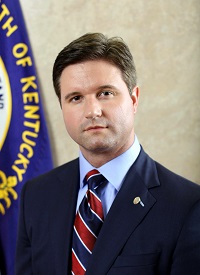
FRANKFORT – Late last Thursday, nearly 400,000 Kentuckians who have health insurance through the Medicaid expansion program got some welcome news when Governor Bevin’s administration announced it was restoring their dental and vision benefits, which had been removed without notice at the start of this month.
The administration, as you may recall, decided to take away those benefits on a weekend, less than 48 hours after a federal judge in Washington, D.C., had blocked implementation of a broader Medicaid waiver that included the dental and vision coverage. Many of those affected were left in pain, while numerous healthcare providers suddenly
faced scheduling headaches and unanswered questions about the future care of their patients.
In short, the judge’s June 29th ruling stated that removing coverage for those who are otherwise income-eligible violates the overall purpose of Medicaid as it was enacted in 1965. That case is almost certain to be appealed, and complicating matters is that another federal case – this one filed in Kentucky by Governor Bevin against the very same people who sued him in Washington, D.C. – is running a month or so behind. That means there’s the possibility of dual federal rulings, which would add to the confusion.
What we know for sure now is that, in the short term, nothing is changing. The dental and vision benefits – as well as non-emergency medical transportation – will be formally restored on August 1st, and medical procedures done this month are expected to be covered retroactively, according to the Cabinet for Health and Family Services.
The federal Centers for Medicare & Medicaid Services is hosting a 30-day public-comment and evaluation period to give people another opportunity to say whether they support or oppose this Medicaid waiver. That began late last week and runs through mid-August, so if you would like to add your thoughts, the link is
https://public.medicaid.gov/connect.ti/public.comments/viewQuestionnaire?qid=1897699
The Bevin Administration is still hoping for final approval of its original waiver, so the long-term fate of these dental and vision benefits remains up in the air. Your input can and should play a role in what happens next, however.
I was proud to join with many of my fellow legislators to push for the restoration of these benefits after their quick removal several weeks ago. We received many worried calls from Medicaid recipients and healthcare providers alike, and I believe the pressure from that growing concern made a difference. The administration should not be above the rules; if changes are to be made, the cabinet needs to follow proper protocol.
It is important to emphasize that the costs of providing these dental and vision benefits are relatively small when compared to the overall Medicaid budget, and become even smaller when measuring the impact of what happens when health issues tied to our teeth and eyes are left untreated. California offers a good example of what can happen. When it removed dental benefits for those on Medicaid, emergency room visits for dental pain increased by
two-thirds, costing the program three times what it would have been had the patient been treated in a dentist’s office. There is also the issue that pain medicine prescribed in the ER for dental pain is a likely factor in Kentucky’s opioid
epidemic.
Vision services for the Medicaid-expansion population are important as well. Adults who qualify only receive exams and diagnostic procedures – glasses and contacts aren’t included – but those exams can spot glaucoma, diabetes and hypertension. Those illnesses are much more expensive to treat if left unattended. Non-emergency medical transportation also plays a vital role in the healthcare of many, especially in rural areas, where there are fewer travel options. These visits are for such things as preventive services, dialysis and physical therapy.
As we wait to see what happens with these and other Medicaid benefits in the weeks and months ahead, my hope is that, whatever is done, we see our collective health continue to improve. Kentucky has historically had high rates of such chronic and deadly illnesses as cancer, diabetes and heart disease, and increased health-insurance coverage has helped us make positive strides in bringing those numbers down. I don’t think anyone wants to see us backtrack on those gains.
If you have any thoughts on this or other issues affecting Kentucky, I would like to know. You can always write to me at Will.Coursey@lrc.ky.gov<mailto:Will.Coursey@lrc.ky.gov>, or leave me a toll-free message at 800-372-7181. If you have a hearing impairment, the number to dial is m800-896-0305.
